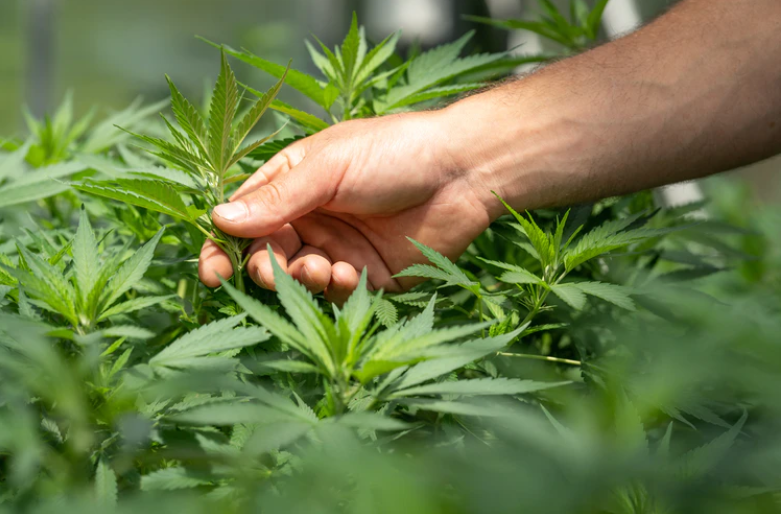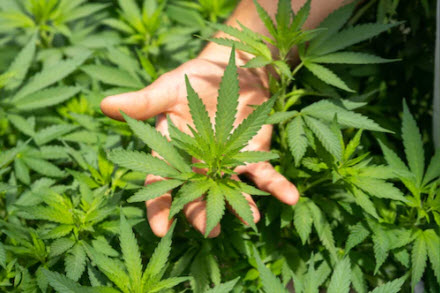The CBD craze has started in the country, but importing products is still very hard and ringed with legal issues. Could the resistance to removing CBD from the same stem from protectionist tendencies within the German government?
Here is one unbelievably great fact about Germany and the cannabis revolution. In 2017, in response to a patient lawsuit, brought by patient Gunther Weiglein, the Bundestag had to move in response. As a result, Germany became the first major economy in Europe to mandate that cannabis was covered under public health insurance.
The Germans were not the first country in Europe where health insurers did cover flower cannabis. Technically that distinction goes to Holland, where, in 2017, health insurers stopped covering cannabis for domestic patients, pushing most of them back into coffee shops.
Even more technically, more pharmacized versions of THC have been available across the continent for a lot longer than that – see Dronabinol for starters if not Cesamet.
Regardless, the year 2017 was a watershed year here – on all cannabis fronts – and things have begun to pick up since. And as of that year, the medical cannabis produced in Holland was more valuable to the Dutch economy at least, when it was exported, and even more so, right next door to Germany.
This move, in fact, may have also been the next step in a dance that is still waltzing around the room.
Namely, so far, despite the first early delivery of medical cannabis cultivated in Germany as of this summer, most of the cannabis consumed here via prescription has been imported from somewhere else. This includes at this point, Canada, Portugal, Lesotho, Australia, Spain, and Latin American countries using either Portugal or Spain as a passthrough authority. It is about to include New Zealand since cannabis is already included in the MRA the country has with European countries.
That is, however, not true of the non-medical CBD market, and this is where things get interesting.
CBD and the German Narcotics Act
CBD, from the beginning, has played a strange stepsister to the whole debate here. Much like in the UK, there has been a strong hemp market here and has been for some time. Look no further for proof than the boisterous Mary Jane B2C extravaganza held in Berlin annually (at least until Covid but there is no reason it will not bounce back). Like Spannabis, there is in fact a wealth of CBD innovation that has been in the room in Germany long before 2017. The entire discussion, in fact, has only gone into highly technical overtime since then.
Here is the big difference. The vast majority of this German CBD market is not foreign. There are of course, Italian hemp cookie producers and Spanish hemp sweet manufacturers among the perennial mix, but most of these vendors were and will be again, mom and pop, German based companies.
Because of this, beyond any expo of course, there are the numerous “head” and pro cannabis shops that have always been a part of the German landscape and will continue to be. Not to mention German smoke and vape shops, which carry, already, high quality German vape extract. And here in particular it is very clear to see that there are no foreign vape extractions with CBD to be seen. In this instance, particularly it is very easy to see that the reluctance to grant licenses to import vape material into the German market on the basis of anti-smoking regulation clearly do not apply to German only companies.
Beyond this, of course, there is no price control on this market. And the reality is, beyond any “Novel Food” discussions, seen in the more sophisticated if not regulated CBD market that is now starting to build up steam from the UK and France to Poland, that there is a considerable German demand for such products, and it is likely to get much greater.
The reason for all of this of course, is that hemp has never really been strictly illegal here, if its THC content was low. This is because within the German Narcotics Act, there is a provision for the limited production of industrial hemp.
This has now been regulated across the EU as 2% in flower. Products are another story. But so is everything in this strange submarket of the cannabiz.
Here is the reality though. Despite the French vape case (which was domestic, but could be cited in precedent, if necessary, in every EU country) which said that imported CBD extract (and of the vaping variety), if produced legally in another EU country, could not be banned for sale, the memo has not trickled through in the German market. In Germany itself, the only precedent setting case of late, namely this spring, about hemp tea, was less about the primacy of EU law about CBD and rather a vendor deliberately coming in hot on THC.
In the meantime, CBD sales of all kinds, including of the vape and even food kind are now afoot in Germany. Almost all these products, however, are produced locally, within Germany.
It may very well be in fact, that the strictures on the market here, particularly for imports, will continue because of the Narcotics Act until actively addressed by the industry.
Every distributor in Germany has an incentive to get this language changed. Domestic businesses also have every incentive to get this restriction removed. However, in the present, CBD importers have and will continue to find it very hard to enter the German market without the help and partnership of a German GMP distributor.
Changing regulation at the European level is of course, critically important. Look no further than the downstream impact of the EU-wide decision on CBD. But beyond this, at the business end, it is also making sure that such decisions, when they come, are quickly interpreted, and preferably not by lawsuit, in every European country.
That starts with Germany. Even if the government is now, albeit slowly, beginning to fund studies into the production of CBD – and for a variety of purposes.









